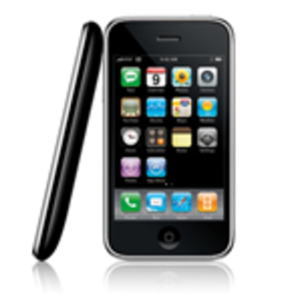Earlier this month, comScore released statistics regarding the top application downloads of all time for Apple’s iPhone platform. According to that information, which showed that nearly half of the top 25 are games, many people assumed that games are making the iPhone the success it is today. However, when looking at another metric, it seems that games might not be as popular as originally thought. When it comes to everyday use of applications, you see, there are several others that rank higher. Can you guess what they are?

As it turns out, the most heavily used iPhone apps aren’t games – they’re weather applications. This is according to new data from an upcoming report from market research firm Compete (and reported by MediaPost). The report states that 39% of iPhone users cited weather applications as the apps they used the most frequently, with 13% citing The Weather Channel app specifically.
Following weather apps, there comes Facebook. The app earned second place with 25% of users reporting they accessed the Facebook iPhone app regularly. It’s possible that it won’t be too long before Facebook beats out weather for first place, though. The application is growing in popularity, adding nearly 1 million active users per month, and is at 30 million actives worldwide. It was also recently recognized by Apple as the #1 All Time Free App in the iPhone app store.
Next, after Facebook, comes the games. 20% of iPhone users reported games as the apps they used the most often. 10% reported music-related apps, and then the apps that followed dropped down to single-digit percentages.
What may be most interesting about this study, though, is that it found people are seeking out apps for download by themselves instead of relying on recommendations from family and friends. According to the report, 60% of both iPhone and other smartphone users said they found the apps they wanted to download on their own. “It’s surprising to see people actually spending time to self-discover,” said Danielle Nohe, director of telecom and media-related research for Compete. That just goes to show these modern-day smartphones are really personal computers after all, aren’t they?

















